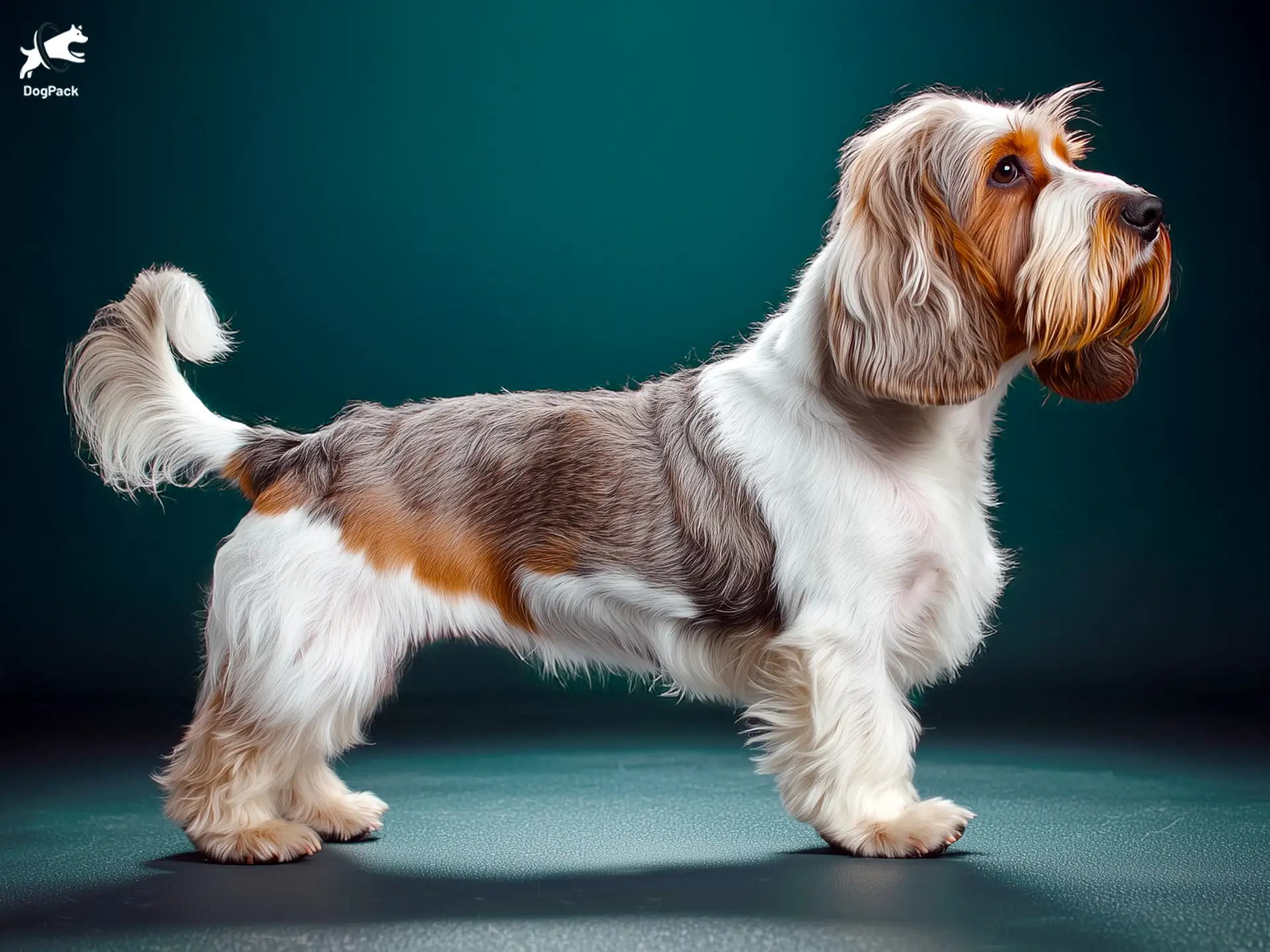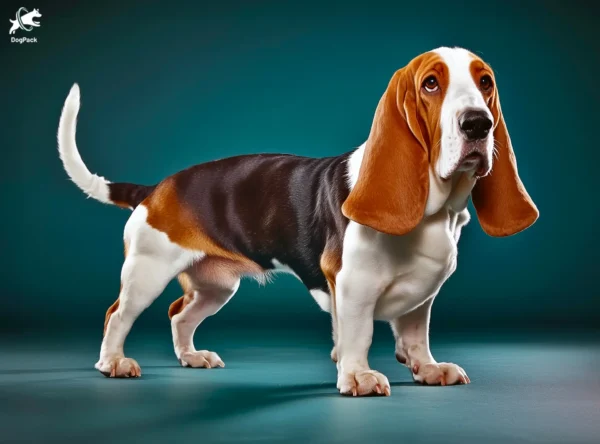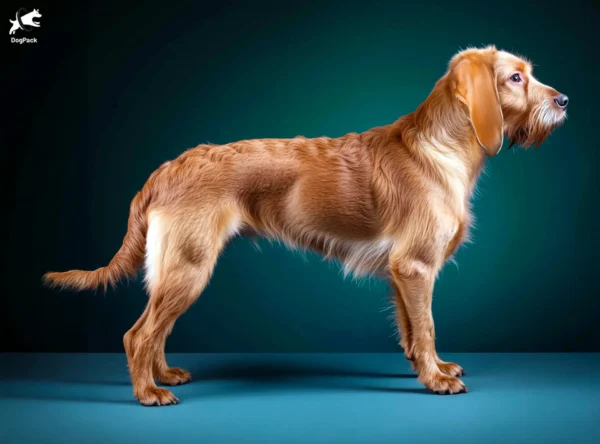Petit Basset Griffon Vendéen Dog Breed Info & Overview
Low-slung yet bursting with energy, the Petit Basset Griffon Vendéen is a small scenthound that loves sniffing out fun. With a friendly expression and a mischievous streak, this adventurous dog thrives on connection. Enthusiasts praise its spunky spirit, making it a delightful companion for those who appreciate a canine sidekick that’s equal parts explorer and cuddle buddy.
Characteristics
Pictures
Breed History
The origin of this merry scenthound traces back to France, where breeders carefully developed a smaller, agile hunting companion. With “Basset” indicating its low stature and “Griffon” hinting at its rough coat, the name reveals centuries of purposeful breeding. Eager huntsmen wanted a tenacious partner that could navigate dense terrain, trailing rabbit or hare with boundless enthusiasm.
Over the years, these dogs became prized for their keen scenting ability and steadfast stamina. The Petit Basset Griffon Vendéen’s lively disposition made it a favorite among French packs, often working in groups to flush out game. Although their numbers once remained small, dedicated enthusiasts championed their value, preserving the breed for future generations of hunters and families alike.
By the mid-1900s, organized breeding programs formalized the standard, highlighting the rough coat, short legs, and fearless demeanor. Official recognition soon followed in various kennel clubs worldwide, opening doors for the breed’s growing popularity. Yet despite increasing acclaim, the Petit Basset Griffon Vendéen remains relatively rare outside its homeland, maintaining an air of exclusivity that appeals to dedicated owners.
Temperament, Personality
Warm, playful, and downright cheeky, these dogs fill a home with laughter. Thanks to a nose that’s always on the move, they’re quick to investigate every new smell, object, or squeaky toy that crosses their path. Beneath that bouncy exterior lies a genuinely affectionate heart, making them eager to cuddle up on the couch once their daily adventures come to a close.
Around children, they often shine as spirited playmates, enthralled by games of hide-and-seek or backyard exploration. Their friendly approach extends to most strangers, as long as positive social experiences are part of their upbringing. However, they still carry a hound’s stubborn streak. With consistent structure and patient handling, you’ll nurture a Petit Basset Griffon Vendéen that is equal parts entertainer and cuddle bug.
Although typically sociable, some individuals may exhibit slight caution around unfamiliar people or pets. Proper introductions and continued socialization ensure a harmonious household. Watch for that unstoppable curiosity, though—if a fascinating scent wafts by, your dog may follow it with single-minded determination. Overall, their sunny disposition and zest for life make them wonderful companions for families or active individuals seeking a trusty sidekick.
Physical Characteristics
This small hound is instantly recognizable by its robust build, low frame, and abundant wiry coat. The coat’s texture helps protect the dog from rough underbrush, a nod to its hunting days. Large, dark eyes and long, low-set ears lend a soft, sweet expression. Despite short legs, these pups carry surprising agility and speed, bounding over obstacles with confidence and flair.
A distinguishing feature is the double coat, with a thick underlayer supporting that rough top layer. Facial hair, including a beard and mustache, contributes to their charming scruffy look. Though small in stature, the Petit Basset Griffon Vendéen is sturdily built, ready to tackle tricky terrains. The tail, carried gaily above the back, adds another dash of charisma to this already dapper package.
Most individuals stand between 13 and 15 inches (33–38 cm) and weigh around 25 to 40 pounds (11–18 kg). Bold hues of white mixed with lemon, black, or tricolor are common, giving each coat a unique patchwork. Despite their petite frame, they exhibit robust muscles and a balanced outline, allowing them to keep up on long rambles or playful chases around the backyard.
Health Issues
While generally hardy, these dogs can encounter certain hereditary conditions. For instance, persistent pupillary membranes, an eye anomaly, may appear. Regular vet checkups can help detect such issues early. Additionally, some lines may be prone to hip dysplasia, so keeping your hound at a healthy weight is essential to minimize joint stress and maintain overall mobility through the years.
Ear infections also pop up among scenthounds, given their long, pendulous ears. Routine cleaning and inspection can prevent moisture buildup and bacterial growth. Because of their robust energy, occasional injuries from rough play or bounding through dense brush can occur. Watching for cuts, scratches, or punctures helps ensure any mishaps get swift treatment, avoiding complications down the road.
A balanced diet, consistent exercise, and regular veterinary care remain the cornerstones of good health. Prompt attention to limping, eye redness, or unusual behavior supports early intervention if a problem arises. While the Petit Basset Griffon Vendéen tends to remain fit well into its golden years, proactive measures—from annual screenings to a cautious approach around slippery surfaces—can help your four-legged friend thrive for a lifetime.
Grooming Needs
The coarse outer coat and dense undercoat call for frequent brushing to remove tangles and minimize shedding. A weekly once-over is usually enough, though some owners opt for a more thorough grooming session every few days, particularly during seasonal coat changes. Careful combing around the face helps keep that delightful beard from looking too bedraggled, especially after meals or outdoor escapades.
Hand-stripping or trimming may be useful to maintain the coat’s characteristic texture. This technique, common in wire-coated breeds, removes dead hairs without damaging new growth. Occasional baths—no more than necessary—keep their skin from drying out. Many PBGV fans appreciate the breed’s natural, slightly rustic look, so a professional groomer familiar with rough coats can offer guidance on preserving that signature scruffy charm.
Don’t forget the details: nails should be clipped or ground down regularly to prevent cracking and discomfort. Ears require gentle cleaning to remove wax and avoid infection. And those expressive eyes benefit from a quick wipe if debris or gunk accumulates. Overall, dedicated yet moderate grooming suits this breed. With consistent upkeep, the Petit Basset Griffon Vendéen’s jaunty appeal remains a showstopper wherever they roam.
Exercise Requirements
High-octane energy defines this intrepid scenthound. Daily walks or jogs, combined with sniff-friendly exploration, help channel that zest for life. Expect spirited dashes around the yard if they catch a whiff of something intriguing. A fenced area is vital—these dogs are known to follow their nose, and once they pick up a scent, they’re liable to ignore everything else, including your recall.
Engaging puzzle toys or scent-based games can tap into their natural hunting instincts. Hiding treats or toys in the yard prompts a mini treasure hunt, satisfying both their mind and body. Obstacle courses are another hit, showcasing their agility and keen sense of adventure. These playful pups thrive on variety, so mix up routines to keep them from getting bored and seeking trouble on their own.
On average, 1–2 hours of activity per day suits their lively nature, though some may crave more. Structure your outings thoughtfully: a brisk morning walk to burn off overnight excitement, a midday sniffing session, and an evening game of fetch or nose work can do wonders. The Petit Basset Griffon Vendéen’s unstoppable curiosity ensures they’re always ready to explore—just remember to keep them safe and supervised.
Training Tips
Stubbornness can emerge when a scenthound’s nose takes over. However, approach training with patience and positivity, and you’ll see steady progress. Short, varied sessions help maintain focus. Incorporate treats that really motivate, especially ones with a strong aroma. This approach taps directly into their keen sense of smell, making lessons more appealing than whatever mysterious scent floats by outside.
Consistency is key. Clear boundaries teach them which behaviors earn rewards and which ones don’t. Gentle correction—never harsh—helps them understand your expectations without damaging their natural enthusiasm. Early socialization pays off too, ensuring your Petit Basset Griffon Vendéen grows into a confident adult that greets new faces and novel situations with curiosity instead of anxiety.
Try linking cues to their environment: for instance, a special whistle when outdoors signals them to refocus on you, even if they’ve caught a rabbit trail. Celebratory praise—think excited tones and a quick belly rub—often goes further than constant treats alone. Enrolling in nose-work classes or canine sports can also be beneficial, providing a fun outlet for their talents while refining their obedience in a structured setting.
Nutrition, Diet
Because of their active nature, the Petit Basset Griffon Vendéen benefits from a high-quality dog food rich in animal-based proteins. Look for recipes featuring fish oil or flaxseed for healthy coat support. Portion size typically ranges around 1.5 to 2 cups total per day, divided into two meals. However, always factor in treats when managing calorie intake to avoid weight gain.
These scenthounds burn off energy but can overindulge if left unchecked. When training with treats, opt for small, aromatic bits that suit their taste while preventing overfeeding. The breed’s robust build puts stress on their joints, so maintaining a lean physique is paramount. Incorporating fresh produce—like carrots or green beans—adds fiber and nutrients without piling on empty calories.
Some owners find success mixing in limited amounts of wet food for added palatability, especially if their dog seems picky. Balance is crucial, so consult a veterinarian for personalized recommendations based on life stage, activity levels, and overall health. Keeping an eye on portion control ensures your hound’s unstoppable curiosity doesn’t lead them snout-first into a food bowl that’s always overflowing.
Adoption, Breeders
Locating a Petit Basset Griffon Vendéen can be tricky, given their relative rarity. Start by contacting national clubs, such as the PBGV Club of America, to learn about upcoming litters or rescue opportunities. Reputable breeders often maintain waitlists to ensure puppies are matched with dedicated families who understand the breed’s lively nature and specialized care.
Adoption from breed-specific rescues offers a wonderful alternative if you prefer to welcome an older dog. Inquire about health clearances, temperament assessments, and any known history to help ease the transition. Websites like AKC Marketplace also list recognized breeders, although meeting in person remains essential to confirm ethical practices. Strive to see living conditions and parent dogs whenever possible.
Steer clear of puppy mills or back-alley operations that prioritize profit over welfare. Expect a thorough vetting process, as reputable sources want the best fit for the dog’s entire life. Once you’ve chosen, keep lines of communication open—breeders and rescue coordinators can be gold mines of breed-specific knowledge. With the right match, your Petit Basset Griffon Vendéen will thrive in a loving home tailored to its spirited temperament.
Family Pet?
Friendly with a dash of mischief, these dogs can slot seamlessly into a household where members understand their energetic streak. Their inclination to investigate means children find an eager partner for outdoor fun. Still, it’s wise to supervise interactions and teach youngsters how to handle a playful pup—especially one sporting long ears and a love for leaping at new scents.
Coexisting with other pets can work well if introduced calmly. While the dog’s hunting background might trigger occasional chasing, early training helps them respect household boundaries. If a feline friend is confident and the dog is taught proper manners, peaceful coexistence is absolutely possible. The breed’s warm demeanor makes them a hit with families who enjoy spirited adventures and cozy evenings alike.
In short, they flourish in settings where social interaction is plentiful. Lonely hours can lead to boredom, and boredom might spark troublemaking. A secure yard, an owner who loves to walk or hike, and a willingness to engage in daily playtime are must-haves. Above all, the Petit Basset Griffon Vendéen craves belonging, thriving on the hustle and bustle of family life.
Right For You?
If you’re after a curious sidekick that keeps your days lively, this might be your perfect match. Be prepared for a vocal pup—like many hounds, they won’t hesitate to announce passing cats, mail carriers, or squirrels. That said, with proper guidance, barking can be managed. Those living in close quarters should evaluate if neighbors can handle the occasional enthusiastic bay.
An enclosed outdoor space is a huge plus, given their tendency to wander off in search of tantalizing scents. Steady exercise schedules are vital. Consider your work and family commitments—these dogs thrive on companionship rather than extended solitude. If you relish daily walks, interactive play, and a dog that seems part detective, part clown, the Petit Basset Griffon Vendéen might just be your ideal friend.
On the flip side, if you’re seeking a couch potato that’ll remain quietly at your side, you may want to explore more laid-back small dog breeds. While affectionate, these pups are more than simple lapdogs. They demand regular stimulation and strong bonds. With patience, training, and a willingness to embrace their enthusiastic nature, you’ll discover a devoted companion that brings constant smiles.
Conclusion
Lively, loyal, and unafraid to follow their nose, the Petit Basset Griffon Vendéen can be a thoroughly entertaining addition to an active household. Their unique blend of devotion and curiosity delights owners who appreciate a dog that’s always up for the next scent-based game. If you can provide the right mix of exercise, structure, and companionship, you’ll find that this spunky scenthound quickly claims a corner of your heart.
FAQs
-
Why do Petit Basset Griffon Vendéens have such a musical bark?
The Petit Basset Griffon Vendéen has a deep, melodic voice originally developed for long-distance communication during hunts. Their baying tone was meant to help hunters track them through thick brush and hills.
-
Are Petit Basset Griffon Vendéens used in modern scent detection work?
Yes, the Petit Basset Griffon Vendéen’s powerful nose and persistence make them suitable for scent detection roles beyond hunting, including tracking lost pets and participating in nosework competitions.
-
What does the word “Petit” mean in the breed’s name?
In Petit Basset Griffon Vendéen, “Petit” means “small” in French and refers to their size relative to the larger Grand Basset Griffon Vendéen. It does not imply a toy breed but a more compact hunting hound.
-
How do Petit Basset Griffon Vendéens express excitement or joy?
The Petit Basset Griffon Vendéen often “talks” through vocalizations, tail-wagging, and animated bouncing. Their body language is famously expressive and joyful, often described as clownish.
-
Is the Petit Basset Griffon Vendéen recognized for its independence?
Yes, the Petit Basset Griffon Vendéen is known for being both affectionate and independent. Bred to hunt without constant handler direction, they retain a streak of self-reliance even in a home environment.
Breed Ratings
The Petit Basset Griffon Vendéen is clever but can be single-minded when a scent catches its fancy.
Expect endless games, bounding energy, and a ready-for-fun attitude.
They require daily physical and mental stimulation to stay happy and balanced.
Their rough coat can shed moderately, especially if not brushed frequently.
This scenthound instinctively chases interesting scents and small critters.
The wire coat needs periodic attention, but is manageable with regular brushing.
Willing to learn, yet occasionally stubborn, especially if distracted by smells.
They prefer company and can become vocal or restless if left for long periods.
They’re hounds—some baying is expected, but training helps curb excess noise.
Not excessive, though you might notice drool after vigorous play or a long sniff session.
Typically sociable with other canines when socialized early and consistently.
Generally robust, with few major concerns when responsibly bred and cared for.













